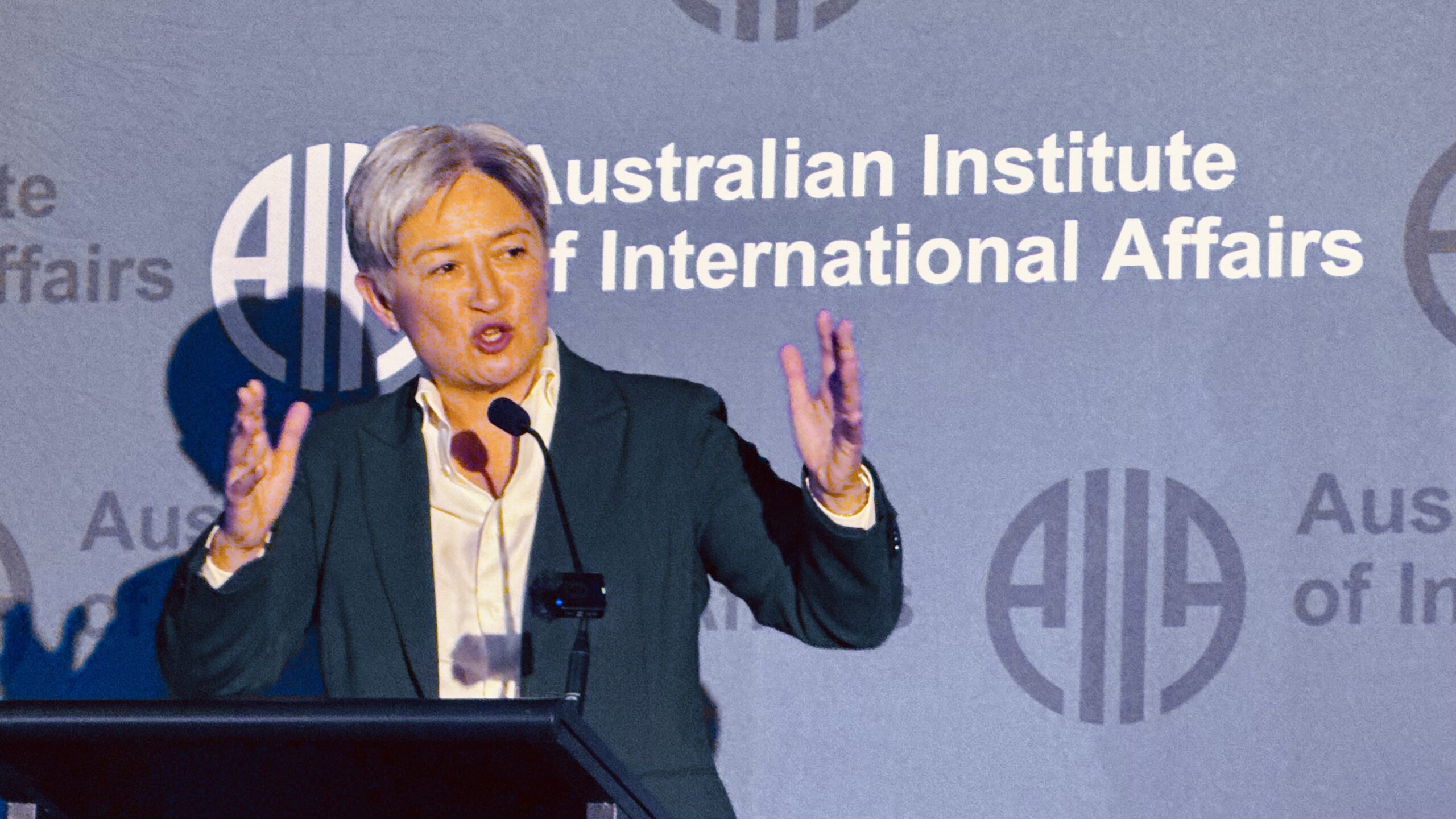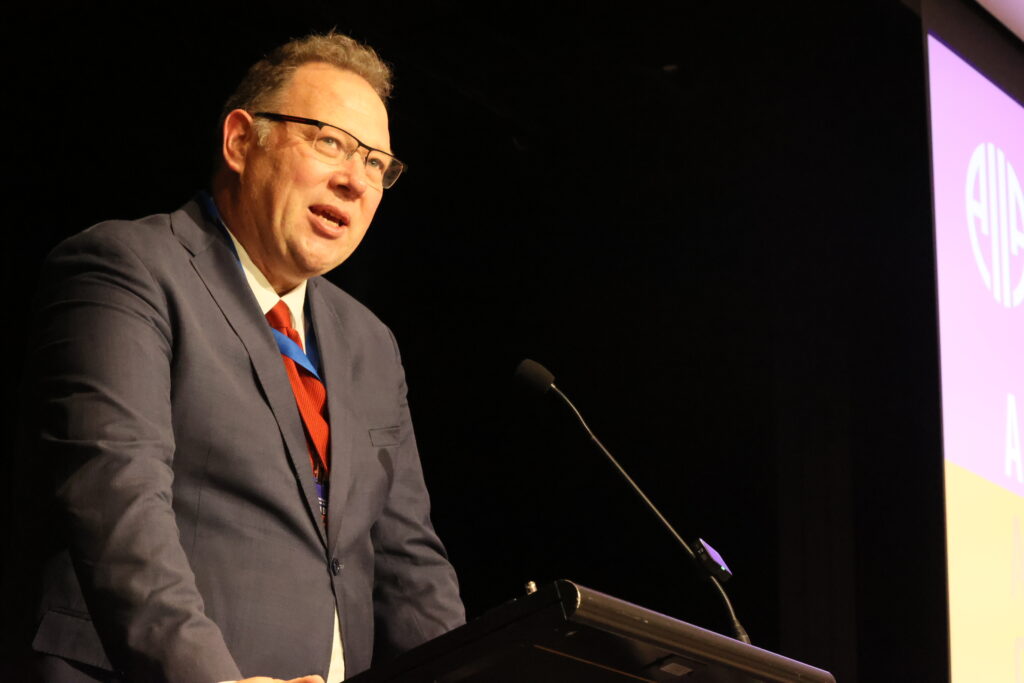Australia is simultaneously engaged in confrontation, competition and cooperation with China. This fragile disequilibrium will test the Albanese Government’s stabilisation policy. But the alternatives – whether capitulation or conflict – are far worse than a flux.
In The Three-Body Problem, Chinese science fiction writer Liu Cixin imagines a world held hostage by the gravitational chaos of three stars – a system so unstable that the civilisation cannot predict, let alone control, its next moment of safety or demise. Survival requires navigating continuous, disorienting flux. Australia today faces its own version of this logic. Our relationship with China has become a three-face problem: a precarious juggling act in which we must counter, compete and cooperate with Beijing – simultaneously and without certainty.
Chinese officials have been candid about how they see this. They have described Australia’s foreign policy as “two-faced.” In truth, they’re only half right. Australia’s diplomacy is necessarily three-, four-, or even five-faced – because in an era of great-power rivalry, the ability to hold multiple, sometimes contradictory, postures is not duplicity. It is the essential skill of statecraft.
The three dimensions
Australia’s engagement with China operates across three distinct but interconnected dimensions, each requiring different strategies and presenting unique risks.
First, we counter China where it threatens our security. Australia actively defends against Chinese cyber operations, foreign interference, and other intrusions on our sovereignty. This isn’t rhetorical posturing – it’s the hard work of protecting democratic institutions, critical infrastructure, and national and institutional decision-making from covert influence. The establishment of our foreign interference laws, economic security agenda and the strengthening of intelligence capabilities reflect this dimension of the relationship.
Second, we compete with China for influence, partners and markets. This competition plays out most visibly in the Pacific, where Australia and China are locked in a battle for security and economic opportunities, as well as the hearts and minds of the Pacific nations through development assistance, infrastructure investment, and diplomatic engagement. The competition has now extended to critical minerals, when Australia made a bet on the US leadership to break China’s near-monopoly on the minerals which power the technologies of the 21st century economy. While Australia remains a relative minnow, our resource endowments give us potential leverage. More broadly, Australia participates in the US-led coalition working to constrain Beijing’s expansion of strategic space in the South China Sea and the wider Indo-Pacific.
Third, we cooperate with China in trade, education, research and through extensive people-to-people links – connections that remain foundational to Australia’s prosperity and social fabric. China remains Australia’s largest trading partner. Our universities depend on Chinese students and academic talent. They also are linked to China’s vast and growing science and technology ecosystem through extensive research collaborations. Deep people-to-people links bind our societies together in ways that transcend government policy. These economic and societal ties generate prosperity and mutual understanding that neither nation can easily replicate elsewhere.
The chaotic gravitational forces of Australia’s three-dimensional relationship with China were on full display this week during the visit of Zhao Leji, chairman of China’s National People’s Congress Standing Committee and the third-highest ranking member of the Chinese Communist Party’s politburo.
Parliamentary staff were instructed to power down phones, tablets, and laptops during Zhao’s tour of Parliament House, with warnings of potential Wi-Fi disruptions. The security measures came shortly after the head of Australia’s top intelligence agency singled out China for cyber espionage and hacking. Yet the optics of the visit continued to be respectful and positive – a meeting with the Governor-General, a dinner in Parliament House, a stop at a Koala sanctuary in Brisbane.
This is not a cognitive dissonance of Australian diplomacy. It is a reality for any state engaging a great power that is simultaneously a security challenge, an economic engine and a systemic rival.
A Fragile equilibrium
Maintaining this three-dimensional relationship requires extraordinary diplomatic skill, and the Albanese government deserves credit for its performance over the past year. The relationship with China has stabilised without Australia taking its eyes off the risks. The core tenets of the US alliance remain intact, including AUKUS and the defence relationship, and the Government has unlocked new areas of alignment with the Trump administration around critical minerals. Meanwhile, relationships with Japan, South Korea and Indonesia are flourishing.
But this equilibrium is inherently fragile and can unravel at any moment. Beijing has long concluded that Australia is an increasingly indispensable part of the US alliance network, which it believes aims to contain China’s rise. From China’s perspective, Australia’s multi-dimensional approach looks like duplicity – benefiting from China’s rise while strengthening military ties designed to constrain Chinese power.
The pressure comes from both directions. When President Trump negotiates with Xi Jinping, Australian interests are far from his mind. The current trade truce between Washington and Beijing benefits Australia in the short term, but tactical bilateral deals that ignore allied interests would further erode the global trading system that Australia desperately seeks to preserve.
An even worse scenario would see any nascent US-China accommodation collapse entirely. In that event, Australia could face simultaneous pressures: Washington demanding hard choices about our China relationship, while Beijing insists on prioritising trade and diplomatic stability over American demands. Being caught between escalating US-China tensions could force Australia into precisely the kind of binary choice that our three-dimensional approach has so far successfully avoided.
The limits of agency
Australia has agency in this environment – the size of our economy and our strategic geography give us tools to influence our own fate.
Yet our agency is being undermined by failures on two critical domestic fronts. First, the government has not adequately communicated to the Australian people what this new era of uncertainty means for their lives and livelihoods. Without public understanding and buy-in, sustaining a sophisticated, multi-dimensional foreign policy becomes politically treacherous.
Second, and more fundamentally, we are not building the economic, defence and technological resilience and dynamism necessary to navigate geopolitical upheaval ahead.
None of the diplomatic achievements of the past year will matter if our economy is weak, our society disoriented, and we are dangerously unprepared to defend ourselves, absent from the game in frontier technologies, renewable energy, and electrification infrastructure. Economic strength is the foundation of strategic autonomy, advocated by some of the leading foreign policy minds in the country, such as Dr Heather Smith. Without it, our ability to maintain the three-dimensional relationship with China and resist pressure from any great power will steadily erode.
Living with chaos
In The Three-Body Problem, the civilisation on the doomed planet learnt to hibernate through the chaotic eras and emerge only during brief stable periods. Australia doesn’t have that luxury. We must remain fully engaged, navigating the gravitational pulls of multiple great powers while maintaining our own trajectory.
The alternatives to this uncomfortable, three-dimensional approach are far worse than the flux itself.
The first alternative is capitulation – accepting that small and middle powers must simply choose a sphere of influence and live within its constraints. This would mean abandoning either our economic partnership with China or our security alliance with the United States, foreclosing options and accepting a diminished role in shaping our own future. For a country of Australia’s size, resources, and capabilities, this would be a strategic and economic catastrophe dressed up as clarity.
The second alternative is conflict – treating the relationship with China as purely adversarial and abandoning the cooperative dimension entirely. This path leads to economic decoupling from the region’s largest and most dynamic economy that would devastate Australian prosperity, eliminate channels for managing tensions, and increase the risk of miscalculation and outright conflict. It would also isolate Australia from regional partners who are themselves pursuing complex, multi-dimensional relationships with Beijing.
The discomfort of three-face diplomacy is not a bug – it’s a feature. The tension between countering, competing, and cooperating creates flexibility and preserves options. It allows Australia to defend its interests without foreclosing future possibilities. It maintains economic relationships that fund our security capabilities that protect our sovereignty and, in turn, enable us to engage with China from a position of strength rather than dependence.
Yes, this equilibrium is fragile and demands constant diplomatic skill. Yes, it can unravel under pressure from Washington or Beijing. But the flux is preferable to the false stability of choosing sides or the genuine instability of confrontation. Australia’s three-face problem with China will persist because it reflects genuine strategic complexity, not diplomatic confusion. The challenge is not to resolve this tension but to manage it skilfully while building the domestic foundations – economic dynamism, social cohesion, technological capability – that give us the strength to maintain our balance when the gravitational forces intensify. Survival belongs to those who can adapt to chaos while staying true to their core interests.
This is an extended version of the remarks delivered at the Australian Institute of International Affairs National Conference in Canberra on 17 November 2025.
Philipp Ivanov is the Founder and CEO of GRASP (Geopolitical Risks and Strategy Practice) and former CEO of Asia Society Australia.
This article is published under Creative Commons License and may be republished with attribution.





